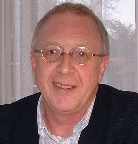09:30 - 10:30, International Conference Hall
Workshop G
Multinational Enterprises and Overseas Transfer
Chairs: Takehiko Murayama and Domyung Paek
 |
Bob_Ruers
Former Dutch Senator, founding member of Dutch Asbestos Committee and Solicitor, the Netherlands
ABSTRACT
The story began in 1900 when Hatschek, an Austrian entrepreneur, developed a technique for the manufacture of asbestos cement, which he called 'Eternit'. Within three years, to be precise in 1903, he had sold the patent on Eternit to companies in countries such as France, Italy and Switzerland. Many companies in many other countries were soon to follow. By 1950, over 200 asbestos cement factories across the world were producing asbestos cement according to the Hatschek principle.
In 1920, a Swiss entrepreneur, called Ernst Schmidheiny, took over the Swiss Eternit factory. Schmidheiny, who was already actively involved in the Swiss cement industry, extended his work sphere to the Belgian cement industry and entered into cooperation with the Eternit factory owned by the Belgian Emsems family.
It was in 1928 that Schmidheiny founded the German Eternit Company in partnership with other European Eternit companies and the American Johns- Manville company. One year after that, he set up the International Asbestos cement company "SAIAC". The aims of these cooperating asbestos cement companies from all over the world were spread out over a vast spectrum of activities: they interchanged experiences and ideas for propaganda, exchanged patents and jointly purchased raw materials. In addition, SAIAC engaged in the exchange of technical knowledge, in shared research, the establishment of new companies in the so-called 'neutral countries', the organisation of export and in reciprocally assuring that raw materials were available. Moreover, those companies joint in SAIAC entered into price and market agreements. In addition to the European Eternit companies, the English asbestos companies Turner & Newall and Cape and the American Johns-Manville company also acceded to SAIAC. In their 1929 annual report, Turner & Newall approvingly referred to SAIAC as "the miniature League of Nations".
In 1969 the Belgian Eternit Company, in cooperation with Johns-Manville and Turner & Newall, founded a new enterprise called TEAM in Luxembourg. Its objective was "to coordinate new asbestos cement companies across the entire globe". TEAM got involved in, to name but a few, Pakistan, Indonesia, Japan, China, Nigeria and Senegal. At first, the Belgian Eternit Company possessed only 8 % percent of the shares in the Luxembourg-based company, but this percentage kept increasing right until 1989, by which the Belgian Eternit Company held 86 % of the shares. It was also in 1989 that the Belgian Eternit Company bought 50 % of the shares in Everest Industry Ltd off Turner & Newall, which was India's largest asbestos cement producer. By doing so, the Belgian Eternit Company had become the largest asbestos cement producer in the world.